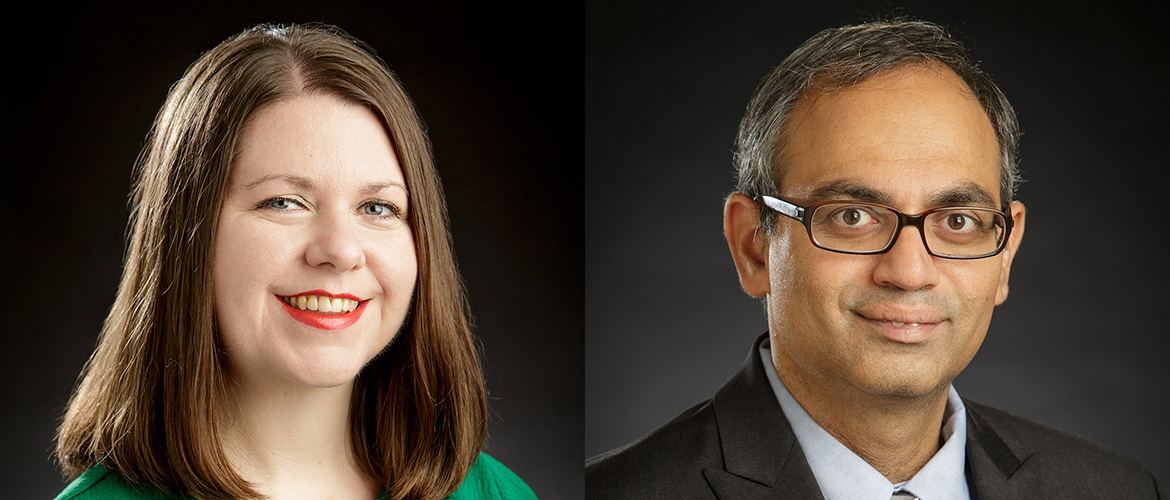
Two CEAT faculty members win NSF CAREER awards
Monday, February 25, 2019
Jindal Shah and Ashlee Ford Versypt, assistant professors in Oklahoma State University’s school of chemical engineering, have each been awarded the National Science Foundation Faculty Early Career Development (CAREER) Program award, NSF’s most prestigious award in support of early-career faculty. OSU’s chemical engineering school now has five faculty members that have received this award in the past 14 years.
Shah received his doctorate from the University of Notre Dame and did postdoctoral research at Ohio State University. He returned to Notre Dame as a research assistant professor. He joined OSU in 2014. Shah’s project, entitled “CAREER: Computation-Enabled Rational Design of Cytochrome P450 for Ionic Liquid Biodegradation,” has been awarded $514,262 over the next five years.
Shah’s proposed research aims to generate foundational knowledge and mathematical models used to numerically study the behavior of a complex system. This information can be extended to engineer enzymes for biodegradation of novel solvents known as ionic liquids, which are salt in a liquid state. The end goal will be to train high school chemistry and biology teachers and aspiring teachers from the OSUTeach program in using molecular editing and visualization tools and teaching undergraduate students how to utilize computation and visualization in their courses.
“[Shah] is quickly establishing himself as a leader in the field, as he was also recently named as one of 25 ‘Emerging Investigators’ in Chemical Thermodynamics by the Journal of Chemical and Engineering Data,” said Heather Fahlenkamp, professor and interim head of the chemical engineering school. “The NSF CAREER Award is very well deserved, and I’m looking forward to his continued success.”
Ford Versypt received her doctorate from the University of Illinois at Urbana-Champaign and performed postdoctoral work at Massachusetts Institute of Technology. She came to OSU in 2014. Her project, entitled “CAREER: Multiscale Modeling of a Virtual Kidney during the Onset and Progression of Diabetic Kidney Disease,” has been awarded $550,000 for the next five years.
Ford Versypt’s project will develop a new approach for studying diabetic kidney disease through a virtual kidney to detect and monitor damage to the glomeruli (where most damage occurs) during the onset and progression of diabetic complications in the kidney. The tool will aid in understanding how diabetic kidney damage begins and changes over time. In the long term, results from this project will help predict the impact of many factors on kidney health during diabetes management.
The project will also involve a set of educational activities related to the scientific work. Several undergraduate and graduate students will be recruited to conduct the research and educational activities. Educational modules related to the research will be delivered to a variety of groups including K-12 students, college students, and grandparents though OSU’s Grandparents University. Physical models of kidney tissues will be 3D-printed and shared with students and educators. The activities will expose many students and members of the public to biomedical engineering and computational science through engaging scientific demonstrations and interactive experiences.
“Dr. Ford Versypt is growing her reputation in research and engineering education,” Fahlenkamp said. “She was also recently selected as the recipient of an American Institute of Chemical Engineers 35 Under 35 Award for her achievements in engineering education. Another very well deserved award, and I’m looking forward to her continued success.”
The CAREER Program offers the NSF’s most prestigious awards in support of early-career faculty who have the potential to serve as academic role models in research and education and to lead advances in the mission of their department or organization. Activities pursued by early-career faculty should build a firm foundation for a lifetime of leadership in integrating education and research.
